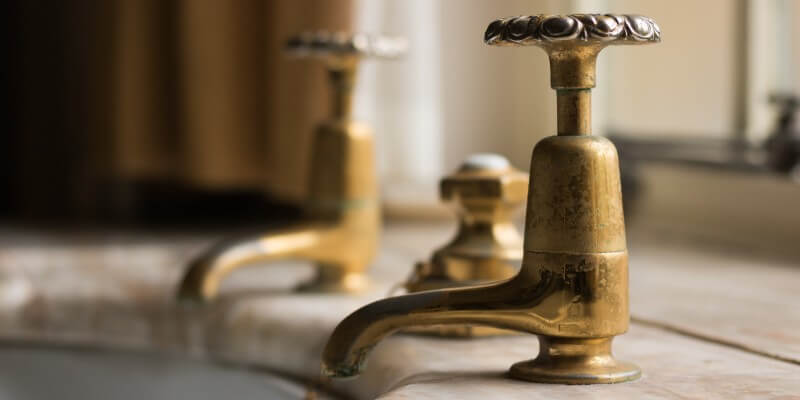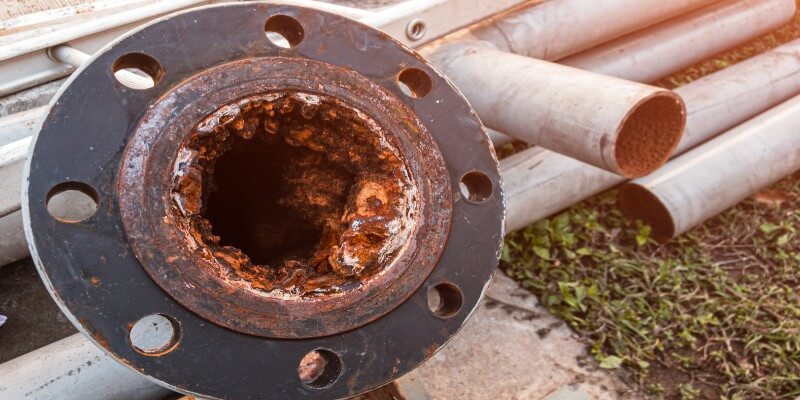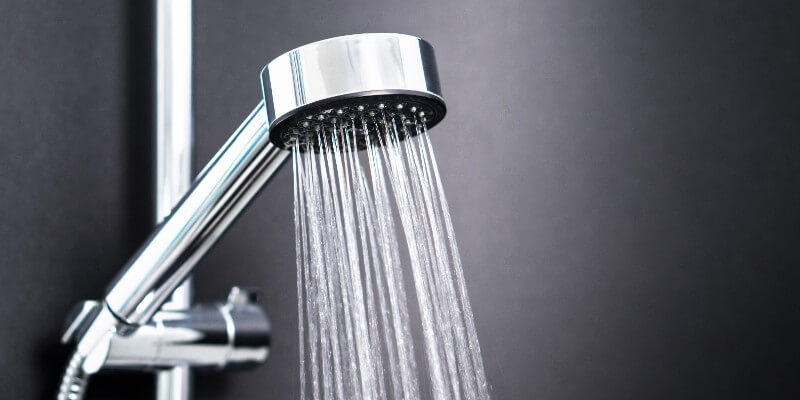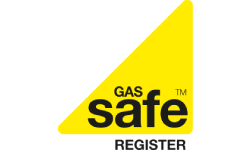There’s nothing more frustrating than low water pressure in your home. It makes it harder to wash items efficiently, and a weak shower stream after a long day at work can turn your typical wash-and-relax routine into a dissatisfying and frustrating experience.
Not to worry, there are several things you can do to remedy the issue of low water pressure in your home. Some of these are quick fixes that should help you address the underlying causes of low water pressure through DIY methods or by contacting a professional. In contrast, others are preventative measures that you can proactively take to decrease the risk of problems in the future.
If you’d like to learn more about how to increase water pressure in your home, read on.
Our Guide On How To Increase Water Pressure
Unless your low water pressure is causing an issue such as no water or leaking, repairs aren’t likely to be high on your priority list. Although you may think that there isn’t a problem with your water and that it is just a case of a shower head needing replacement, in some cases, this couldn’t be further from the truth. Having said this, there are plenty of cost-effective ways to increase your water pressure.
As professional plumbers in Buckingham and the surrounding areas with many years of industry experience, we are no strangers to household plumbing issues such as low water pressure. This means we have all the knowledge necessary to outline the most likely causes of low water pressure in your house and recommend how to address them.
If you would like to speak to our team about an issue with the plumbing in your home, our heating services or boiler installations in Milton Keynes and the surrounding areas, please do not hesitate to get in touch with our friendly team, who will be more than happy to help you out.
Subscribe To Our Newsletter
Receive professional tips and advice
Causes Of Low Water Pressure In The House
Low water pressure can affect multiple areas of your home, from the shower to your dishwasher, which can significantly affect the comfort of your everyday activities, making life much harder. However, it can be easy to identify whether your water pressure is caused by issues in the pipework or whether it is a result of old and outdated products. For example, if your kitchen tap has low water pressure, this could be due to limescale build-up, but if both your taps and shower are affected, then it is likely to be an issue with the main pipes in your home, which will require a professional helping hand.
There are multiple reasons behind your water pressure being low, and by discovering why this is the case, you can identify what repairs are required to fix it. The most common reasons for low water pressure include:
Old & Outdated Fixtures
Much like any aspect of the home, as your fixtures become old and outdated, they can cause issues with functionality and appearance. In most cases, old fixtures will be affected by mineral deposits such as rust or limestone, which can obstruct the fixture and significantly impact its functionality. This can diminish water pressure and disrupt the quality of water coming through the fixtures, resulting in limescale build-up in kettles, harsh water for showers and more. If you find that old fixtures are causing an issue and that only a few are experiencing low water pressure, it may be time to change and update your fixtures.
To test your fixtures, start by turning them on one at a time and observing the water coming out. If it appears weak, clean the faucets and turn the fixture on again. By doing this, you can identify which are causing you issues and whether it is all fixtures or just a few. If you notice that your aerators are clogged, you’re in luck, as you can easily replace just this section of the fixture. On the other hand, it may be time to replace the entire product with an up-to-date and durable alternative. Try to avoid cheap fittings, as it is likely that you’ll require another replacement next year. Instead, opt for good-quality fixtures and research reviews before heading to the checkout.

Faulty Pressure Regulator
A faulty pressure regulator can cause low or high water pressure, so if you have one installed, this may be the root of your problems. Not all homes have a pressure regulator, and if this is the case, you may need to contact our team to take a look at your water pressure as there may be some underlying issues. Additionally, you should look into installing a pressure regulator for the following reasons:
- Helps to save water
- Prolongs the life of fixtures and appliances
- Saves you money on water bills
- Stabilises your pressure and helps you to adjust pressure higher or lower
- Reduces the risk of leaking
If you are unsure whether you have a pressure regulator, then you may be able to clarify this by looking at the front of your home for a bell-shaped device situated on the hose connection. The manufacturer will set the device’s water pressure, usually around 45 to 60 psi; you should not need to adjust this. However, suppose you find that the pressure is too low. In that case, you are able to adjust this by turning the screw at the tip of the device, gradually turning it clockwise to increase the pressure or counterclockwise to lower water pressure. If you find that this does not work or that the regulator cannot adjust the pressure without being too high or low, then it may be time to replace the device.
Turned Off Water Valves
Two main valves shut off water flow; one is positioned in your home, and the other is at your meter. If, for some reason, these valves are partially or completely turned off, then this will be causing significant issues with your water pressure. This may be the case if you temporarily turn off the valves for internal works or when you go on holiday, for example, to reduce leaking in your home while away.
So, before doing anything, ensure that these valves are fully open to make sure that this is not causing issues with your water pressure. Before checking your valves, we strongly recommend that you take a look at WaterWorld’s handy article, including diagrams and tips on how to understand and check water valves in your home.
Clogged Pipes
One of the most common reasons your water pressure will reduce is clogged pipes, which can result from many factors. The most common reasons for this include the water having high levels of limescale or the pipes being extremely old, causing a build-up of dirt, debris, rust, or mould. This is most commonly found in galvanised steel pipes, which used to be common but have since been replaced with longer-lasting solutions. The best indication that this is a problem is that your water flow is good when you first turn on your fixture, but it suddenly becomes weak once the water has been flowing for a while.
If this is the cause of your low water pressure, you should not investigate any further and should contact our team for assistance. This is something that only a professional should fix, as you could risk severely damaging your plumbing system should you try to do it yourself. Our team has years of experience behind them, having completed hundreds of plumbing projects, including boiler repairs in Milton Keynes and the surrounding areas, so please feel free to book in with us if you are experiencing issues.
Corroded Plumbing System
In some unfortunate cases, you may find that your pipes are corroded, and a full replacement of your piping systems is required to fix your issue; this is particularly the case if you have a period home. If your pipes are made from galvanised steel, they tend to have a lifespan of around 20 to 50 years depending on use and minerals or limescale passing through the pipes. On the other hand, if your pipes are made from brass, copper or iron, you can expect a life span between 40 and 100 years.
If you live in an older home and are experiencing these issues, it is likely to be down to the age of your pipes and the materials used. It is important that you immediately contact a professional to replace your pipes, as this can cause severe issues with your home, such as leaking. Here at Bishop Plumbing & Heating, we will always use only the highest quality products for your repairs and replacements, ensuring that you can enjoy your products for many years to come.

How To Increase Water Pressure In The Home
Whether you’re in need of advice on how to increase water pressure in your shower, sink taps or dishwasher or are trying to figure out how to increase water pressure without a pump, we’ve got you covered with these tips:
- Open The Supply Valve: If the issue is your valves, then you should always make sure that they are tightened properly or open fully before testing anything else. If your water pressure instantly increases, you should
- Check For Leaks: A leak in your home can cause catastrophic problems that end up costing a lot in repairs. Check around fixtures and pipes to make sure that they are not leaking. If you do find a leak, then please contact a plumber immediately, and if possible, turn off your water valves.
- Unblock Pipes: As blocked pipes can be the easiest and most cost-effective issue to resolve, you should always ensure that you have a selection of products at hand in case you need to do an emergency unclogging. You can find a thorough guide on how to unblock your pipes on B&Q.
- Install A Booster Pump: While our other tips show you how to increase water pressure without a pump, should you be open to this option, you will be able to find a water pressure booster pump in most DIY stores.
- Contact A Professional: If you are unsure what is causing the issue and you are not familiar with the basics of plumbing, then we would always advise that you contact a professional to lend a helping hand. Attempting to fix the issue without the correct equipment or knowledge can cause more harm than good.

How To Improve Water Pressure
Low water pressure can significantly impact how you enjoy your everyday activities, such as your morning shower or even washing the dishes in the evening. For this reason, it is always important to ensure that your plumbing system is working effectively and that when issues appear, you always find solutions to fix them before they worsen.
In some cases, this may require you to speak to a professional for assistance. If this is the case, we would always advise you to enlist an experienced team that can not only identify the issue but also lend you a helping hand with quality, industry-approved products and services. So, if you are having issues and are unsure what is causing your low water pressure, please feel free to contact Bishop Plumbing & Heating today!












